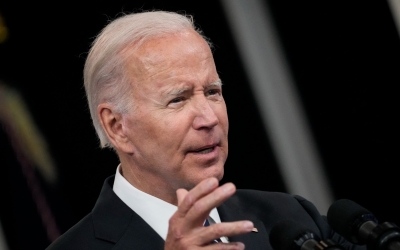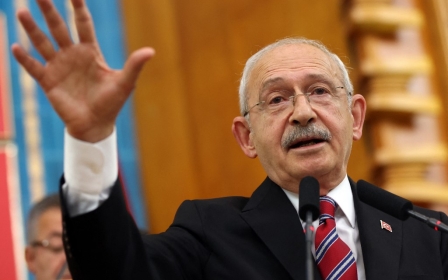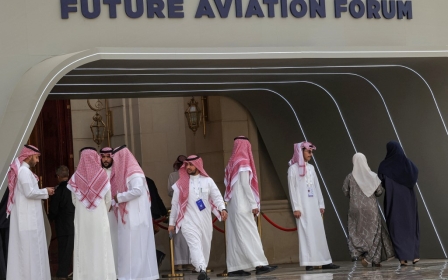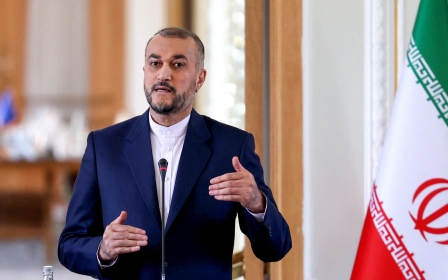Israel and Saudi Arabia negotiating direct flights for Hajj pilgrims, report says

Israel and Saudi Arabia are negotiating a deal that would allow Palestinians with Israeli citizenship to fly directly to Saudi Arabia to perform the Hajj and Umrah religious pilgrimages, the Financial Times reported on Monday, citing multiple unnamed sources.
The report comes after a senior US official informed lawmakers last week that more Arab countries were prepared to take steps toward normalising relations with Israel, coinciding with President Joe Biden's visit to the region next month.
"We are working in the space that is not in the public domain with a couple of other countries," Barbara Leaf, assistant secretary of state for Near Eastern affairs, said at a Congressional hearing on Wednesday.
"I think you will see some interesting things around the time of the president's visit," she said.
The US is believed to be brokering a deal between Israel, Egypt and Saudi Arabia to transfer control of the Red Sea islands Tiran and Sanafir from Egypt to Saudi Arabia, which would require Israel to agree to new security arrangements on the relocation of a multinational force of observers from the islands to the Egyptian mainland.
In return, Saudi Arabia would allow Israeli airlines to fly over its airspace. Currently, only Israeli flights to the United Arab Emirates and Bahrain can fly over the kingdom, as well as Air India flights to and from Israel.
Beginning of 'a path'
Israel announced at the end of 2020 that citizens would officially be allowed to travel to Saudi Arabia under "limited circumstances". The permission was granted for cases of business travel, and Muslim citizens looking to perform religious pilgrimages.
Palestinian citizens of Israel would usually travel to the kingdom on temporary Jordanian papers and had to stop in Amman. Another option was a 1,000-mile bus ride.
Several Arab states have moved closer to Israel in recent years amid shared security concerns over Iran.
Israel's defence minister told lawmakers last week that the country was helping to build a US-led regional air-defence alliance against Iran and that the partnership had already thwarted attempted attacks.
While Israel has cooperated with several of its Arab neighbours on security issues for several years, relations have come out more in the open since the signing of the 2020 Abraham Accords agreements.
The United Arab Emirates, Bahrain, Morocco, and Sudan all normalised ties with Israel, but the agreements failed to solve the conflict between Israelis and Palestinians,
Saudi Arabia was supportive of the process and officials in the kingdom have spoken about following suit, but have insisted the country will not move forward until progress has been made on addressing the Israeli-Palestinian conflict.
"I think we have always seen normalisation as the end result, but the end result of a path," Saudi Foreign Minister Prince Faisal bin Farhan al-Saud said this month at the World Economic Forum in Davos, Switzerland.
"We always envisioned that there will be full normalisation with Israel, and I’ve said before that a full normalisation between us and Israel, between the region and Israel, will bring immense benefits - [but] we won't be able to reap those benefits unless we address the issue of Palestine."
Middle East Eye propose une couverture et une analyse indépendantes et incomparables du Moyen-Orient, de l’Afrique du Nord et d’autres régions du monde. Pour en savoir plus sur la reprise de ce contenu et les frais qui s’appliquent, veuillez remplir ce formulaire [en anglais]. Pour en savoir plus sur MEE, cliquez ici [en anglais].





